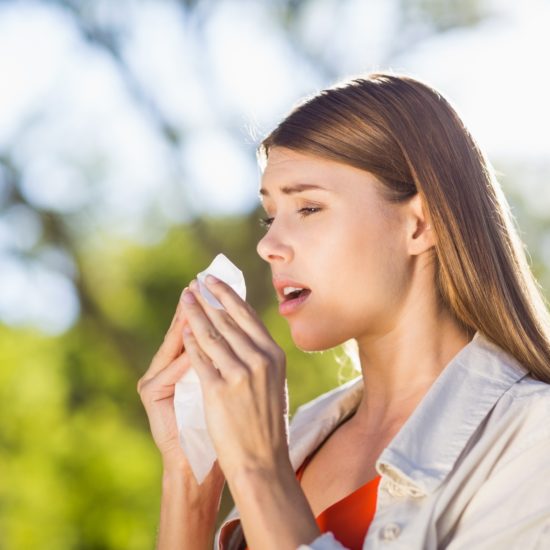4 Serious Dangers of Sunscreen
 For many years we’ve believed that sunscreen is a safe and effective way to prevent skin cancer from UVA and UVB rays. After all, that’s how it’s been marketed for decades. However recent studies found that there are a number of health risks associated to sunscreen use. Whether or not the dangers are worth giving up your sunscreen routine is up to you.
1. Increased risk of Cancer
Researchers have found an increased risk of melanoma in sunscreen users. Scientists argue that people who use sunscreen stay out in the sun longer and absorb more radiation, or that free radicals that are released as the sunscreen breaks down in sunlight may be part of it. One possible reason for this is that poor sunscreens with bad UVA protection agents have been at the top of the consumer market for 30 years due to their lower prices. All public health industries still believe you should still use sunscreen, but they also think shade, clothing, and time of day should be important things to remember.
2. A higher SPF doesn’t mean longer protection
People who use sunscreen with a high SPF think they are completely immune to sun damage, but that is not the case. Scientists say that there is no evidence that using a sunscreen with an SPF of 85 allows people to remain in the sun longer than they would when using a sunscreen with a lower SPF. In 2007 the FDA published regulations that would prevent companies from labeling sunscreen with an SPF higher than 50. The FDA believed that higher values are misleading – that high SPF products may make people stay in the sun too long and increase their risk of skin cancer. In addition, a sun block with SPF 60 only blocks 1 – 1.5% more of UV rays than an SPF 30.
3. Sunscreen doesn’t necessarily prevent skin cancer
The FDAs draft of sunscreen safety regulations in 2007 said “the FDA is not aware of data demonstrating that sunscreen use alone helps prevent skin cancer”. The International Agency for Research on Cancer agrees. They recommended using hats and shade as primary barriers. Sunscreen should not be the only form of protection against skin cancer. In fact, in the US, the FDA’s 32 year effort to set enforceable guidelines for consumer protection has stalled. There has been an abundance of problems in existing products including false claims about sun block protection and inadequate UVA protection. Hopefully these problems with existing products will be fixed when the FDA’s rules take effect. However, there will still be loopholes in sunscreen quality as the FDA does take toxicity into effect when testing products for safety.
4. The vitamin A added to sunscreen may speed cancer production
Recent information from the FDA shows that a type of vitamin A may speed up the development of skin tumors and lesions when applied to the skin under UV rays. This type of vitamin A is commonly added to sunscreens and is present in 41% of all sunscreen products. The industry adds this particular form of vitamin A to its sunscreens because it is an anti-oxidant that prevents aging. The vitamin A is approved for indoor use, but after a study, there is a possibility that it results in cancerous tumors when applied to the skin that is exposed to sunlight.
For many years we’ve believed that sunscreen is a safe and effective way to prevent skin cancer from UVA and UVB rays. After all, that’s how it’s been marketed for decades. However recent studies found that there are a number of health risks associated to sunscreen use. Whether or not the dangers are worth giving up your sunscreen routine is up to you.
1. Increased risk of Cancer
Researchers have found an increased risk of melanoma in sunscreen users. Scientists argue that people who use sunscreen stay out in the sun longer and absorb more radiation, or that free radicals that are released as the sunscreen breaks down in sunlight may be part of it. One possible reason for this is that poor sunscreens with bad UVA protection agents have been at the top of the consumer market for 30 years due to their lower prices. All public health industries still believe you should still use sunscreen, but they also think shade, clothing, and time of day should be important things to remember.
2. A higher SPF doesn’t mean longer protection
People who use sunscreen with a high SPF think they are completely immune to sun damage, but that is not the case. Scientists say that there is no evidence that using a sunscreen with an SPF of 85 allows people to remain in the sun longer than they would when using a sunscreen with a lower SPF. In 2007 the FDA published regulations that would prevent companies from labeling sunscreen with an SPF higher than 50. The FDA believed that higher values are misleading – that high SPF products may make people stay in the sun too long and increase their risk of skin cancer. In addition, a sun block with SPF 60 only blocks 1 – 1.5% more of UV rays than an SPF 30.
3. Sunscreen doesn’t necessarily prevent skin cancer
The FDAs draft of sunscreen safety regulations in 2007 said “the FDA is not aware of data demonstrating that sunscreen use alone helps prevent skin cancer”. The International Agency for Research on Cancer agrees. They recommended using hats and shade as primary barriers. Sunscreen should not be the only form of protection against skin cancer. In fact, in the US, the FDA’s 32 year effort to set enforceable guidelines for consumer protection has stalled. There has been an abundance of problems in existing products including false claims about sun block protection and inadequate UVA protection. Hopefully these problems with existing products will be fixed when the FDA’s rules take effect. However, there will still be loopholes in sunscreen quality as the FDA does take toxicity into effect when testing products for safety.
4. The vitamin A added to sunscreen may speed cancer production
Recent information from the FDA shows that a type of vitamin A may speed up the development of skin tumors and lesions when applied to the skin under UV rays. This type of vitamin A is commonly added to sunscreens and is present in 41% of all sunscreen products. The industry adds this particular form of vitamin A to its sunscreens because it is an anti-oxidant that prevents aging. The vitamin A is approved for indoor use, but after a study, there is a possibility that it results in cancerous tumors when applied to the skin that is exposed to sunlight.
Also Read
Salmonella: diseases and Prevention
Prevent Cancer Risk With Exercise
Breast Cancer Prevention: The Responsibility is Yours


